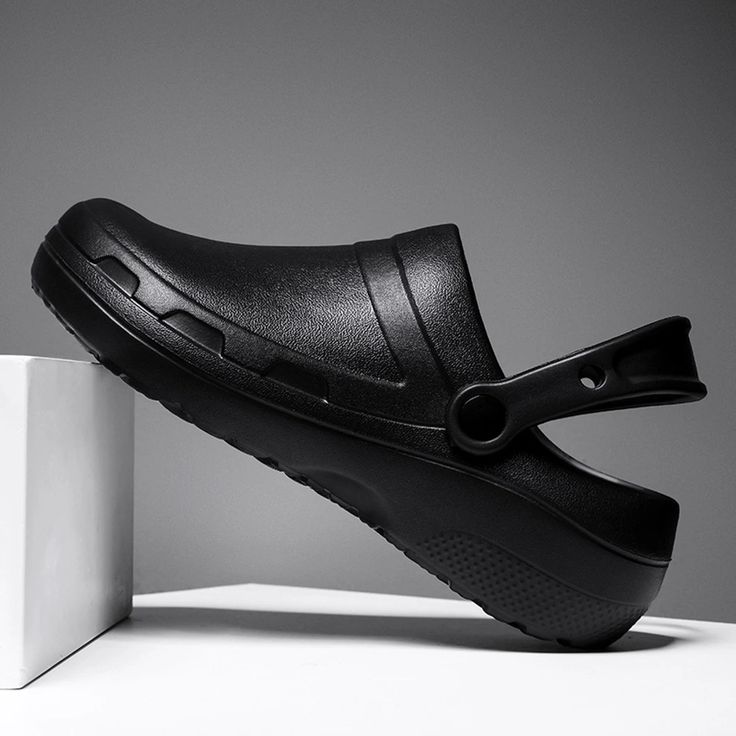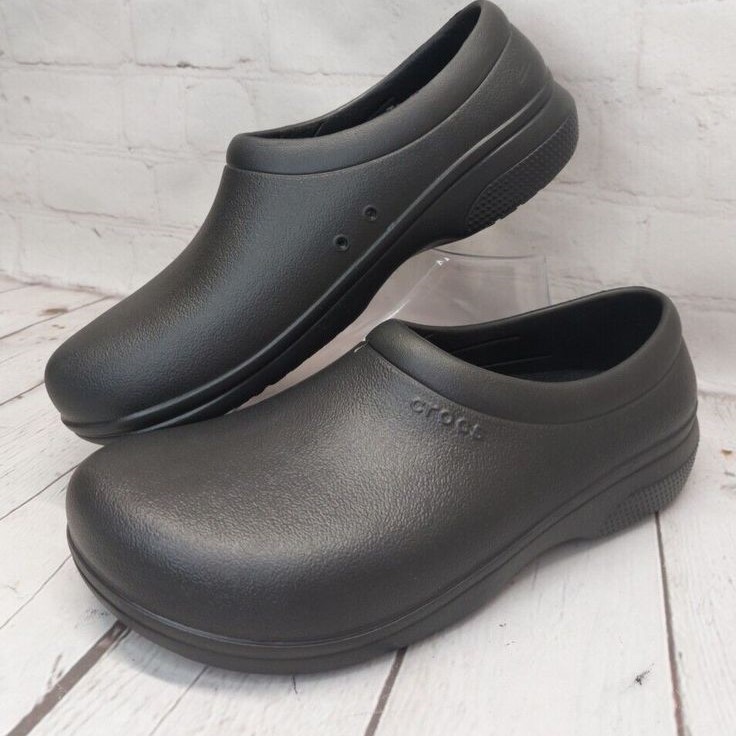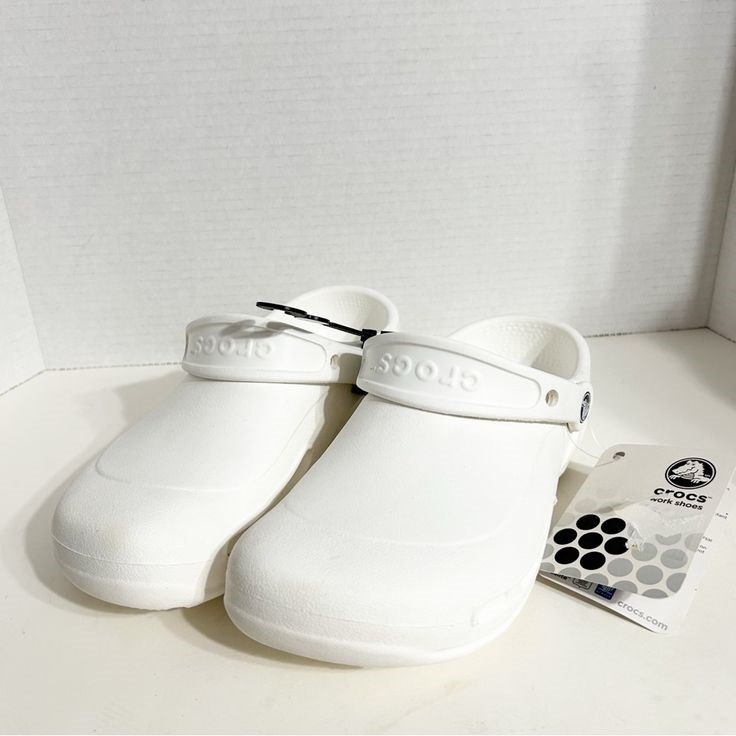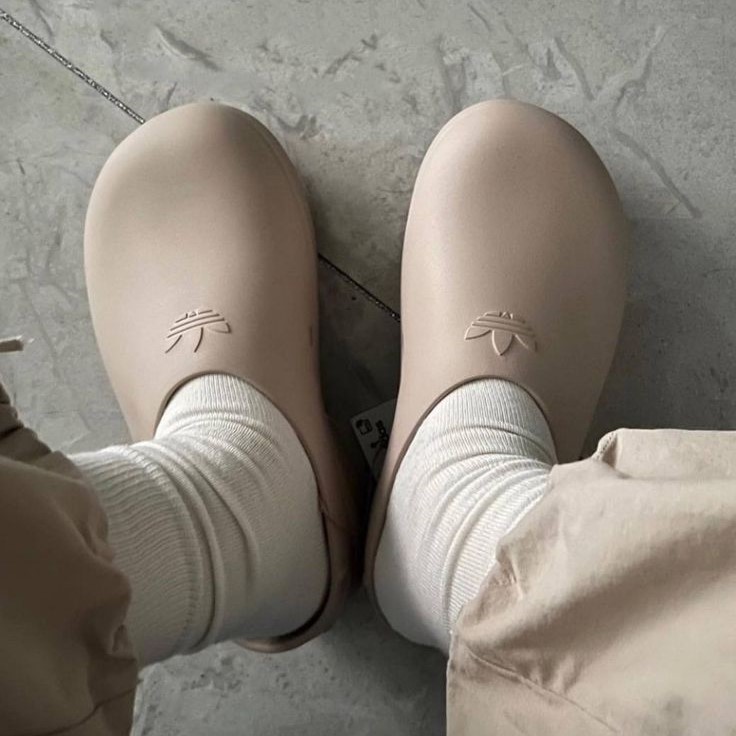Introduction: The Versatility of Crocs
When it comes to comfortable and versatile footwear, Crocs have established themselves as a household name. Many people wonder, are Crocs closed toe shoes? The answer is not straightforward, as Crocs come in a variety of styles, including both open and closed-toe designs. Understanding these different variations is key to determining their suitability for various occasions. This article will explore the different types of Crocs, their designs, and why they have become a popular choice for many.
What Defines a Closed-Toe Shoe?
Closed-toe shoes are designed to fully protect the toes. They have sturdy materials covering the front. These shoes are often worn for safety, comfort, or professional requirements. Understanding their defining features is essential to distinguish them from open-toe shoes.
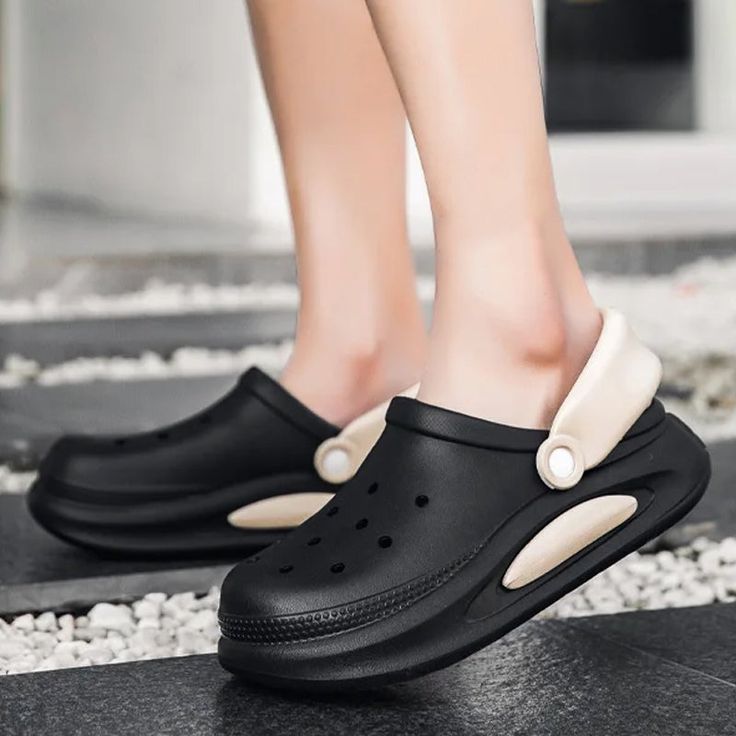
Characteristics of Closed-Toe Shoes
- Toe Coverage: The front part fully covers the toes, leaving no gaps or openings.
- Material: They use durable materials like leather, rubber, or synthetic fabrics.
- Design Purpose: Closed-toe shoes are primarily for protection from impact or external debris.
- Structure: They have a firm construction, often with reinforced toe areas.
- Versatility: Suitable for various settings, including workplaces, schools, and outdoor activities.
Common Examples of Closed-Toe Footwear
- Sneakers: Offer protection and comfort for casual wear and sports.
- Loafers: Versatile and appropriate for professional or semi-formal events.
- Boots: Provide added protection and durability for outdoor or rugged activities.
- Oxfords: Ideal for formal and business attire.
- Safety Shoes: Equipped with steel or composite toes for workplace safety.
These characteristics and examples highlight what makes a shoe “closed-toe.” Understanding them can help you choose the right footwear for specific needs.
The Design of Crocs Shoes
Crocs shoes have a distinct design that sets them apart from traditional footwear. Known for their comfort, versatility, and lightweight structure, Crocs have become a popular choice for various settings. While their design may vary, some Crocs styles align closely with closed-toe shoe characteristics.
Key Features of Crocs
- Material: Crocs made from Croslite, a unique foam resin providing comfort and flexibility.
- Toe Coverage: Some designs feature full toe coverage, protecting the front of the foot.
- Ventilation: Many Crocs styles incorporate holes for breathability, reducing sweat and odor.
- Slip Resistance: Their soles often offer good grip, ideal for slippery or wet environments.
- Lightweight Design: Crocs are lightweight, reducing strain during prolonged use.
- Ease of Cleaning: The material is easy to clean, making them low-maintenance.
Variations in Crocs Designs: Open vs Closed-Toe Styles
- Classic Clog: The most recognizable design, this style includes toe coverage with added ventilation holes.
- Closed-Toe Crocs: Some models lack ventilation holes on the top and offer more robust toe protection.
- Sandals and Slides: Open-toe designs provide minimal coverage, making them unsuitable for closed-toe requirements.
Crocs offer both open and closed-toe styles, which cater to diverse needs. For those seeking closed-toe functionality, specific models like certain clogs provide ample coverage to meet basic requirements. Understanding these variations can help users choose more purpose-driven designs.
Are Crocs Approved as Closed-Toe Shoes in Different Settings?
Crocs are loved for their comfort and unique design. But their approval as closed-toe shoes varies. Rules differ across workplaces and industries. Safety standards also play a big role in acceptance.
Workplace Guidelines for Closed-Toe Shoes
- Industry-Specific Requirements: Some workplaces require strict safety footwear like steel-toe boots. Crocs may not qualify here.
- Office Settings: In casual offices, closed-toe Crocs might be acceptable. Their design could meet basic requirements.
- Healthcare: Many healthcare settings accept closed-toe Crocs for nurses or staff. Their lightweight structure and toe coverage make them suitable.
- Retail and Hospitality: Crocs with full toe coverage are sometimes allowed in customer-facing roles. Slip-resistant soles add advantages.
- Manufacturing: These settings often have strict guidelines. Crocs might not meet full protective standards required.
Workplace approval depends on safety rules and design type. Specific Crocs styles might fit certain roles or industries.
Safety Standards and Crocs
- Toe Protection: Closed-toe Crocs cover toes but lack reinforced materials like steel or composite.
- Slip-Resistance: Their grip works well in slippery areas, helping meet some safety standards.
- Ventilation Holes: Many models feature holes, which may not comply with full-coverage safety needs.
- Material Durability: Croslite provides flexibility but may not withstand heavy impacts or risks.
- Approved Styles: Some Crocs designs are labeled for specific environments. Look for these when choosing.
Safety requirements depend on settings like construction sites, hospitals, or kitchens. Closed-toe Crocs might fit less demanding environments but aren’t ideal for high-risk areas.
Advantages of Using Crocs as Closed-Toe Shoes
Crocs have unique benefits that make them suitable for various settings. Their design blends comfort with practicality, providing excellent advantages for users seeking closed-toe options.
Comfort and Durability
- Soft Material: Crocs are made from Croslite, which molds to feet for improved comfort.
- Lightweight Design: Their lightweight structure reduces strain on feet during extended wear.
- Shock Absorption: The foam material cushions impacts, enhancing comfort while walking.
- Durability: Croslite resists wear and tear, ensuring long-lasting use.
- Easy Maintenance: Crocs are simple to clean, maintaining their look and usability.
Breathability and Protection
- Ventilation: Designs with holes provide airflow, reducing moisture and odor.
- Toe Coverage: Some models fully protect toes from minor injuries or debris.
- Slip Resistance: Non-slip soles offer safer footing in wet or slippery areas.
- Water Resistance: The material repels water, making Crocs ideal for damp settings.
- Hygienic Design: Smooth surfaces make them less prone to trapping dirt or bacteria.
Crocs combine comfort, durability, and adequate protection for suitable environments, making them practical closed-toe options in specific scenarios.
Limitations of Crocs in Certain Environments
Crocs offer many benefits, but they have limitations in specific environments. These should be considered before wearing them for certain purposes.
When Crocs May Not Qualify as Closed-Toe Shoes
- Ventilation Holes: Many Crocs models include holes, which compromise full toe protection. This makes them unsuitable for environments requiring complete coverage.
- Lack of Reinforcement: Crocs don’t feature steel or composite reinforcements for toe protection. They can’t handle heavy impacts.
- Material Weakness: Croslite, while durable, doesn’t provide the toughness needed for hazardous or industrial jobs.
- Professional Standards: Meeting workplace safety requirements often calls for footwear with regulatory certifications. Many Crocs models lack these.
- Limited Weather Resistance: Crocs may not offer adequate insulation for extreme cold or protection from sharp objects.
While Crocs work for casual uses, they may not meet rigorous needs in demanding environments.
Situations Where Alternative Closed-Toe Shoes Are Preferred
- Construction Sites: Steel-toe boots are necessary to protect against falling tools or heavy objects. Crocs are inadequate.
- Industrial Workplaces: Factories require footwear with enhanced durability and anti-slip certifications. Crocs often don’t qualify.
- Outdoor Hiking: Trails with rough terrain demand boots with ankle support and tough soles, not Crocs.
- Formal Occasions: Events needing formal attire call for sleek, professional shoes like Oxfords or loafers.
- Cold Climates: Insulated footwear is better suited for snowy or freezing weather, unlike non-insulated Crocs.
In these cases, choosing alternative closed-toe footwear ensures better safety, function, and comfort.
Crocs and Their Versatility
Crocs are known for their adaptability and practical design. They cater to a wide range of needs. From casual wear to specialized applications, Crocs offer something for everyone.
Everyday Use and Casual Settings
Crocs excel as daily footwear due to their comfort and lightweight build. Here’s why they are ideal for casual use:
Comfortable Fit:
Crocs are designed to mold to the unique shape of your feet, providing a custom fit that enhances comfort.
The soft, cushioned footbed offers excellent arch support, making them ideal for extended wear without causing discomfort.
This characteristic makes them suitable for a variety of situations, from casual outings to prolonged standing at work or home.
Easy Maintenance:
The material used in Crocs is both durable and resistant to dirt and stains, ensuring they stay looking fresh with minimal effort.
Cleaning is a breeze; simply rinse them off with water or wipe them down with a damp cloth to remove any dirt or debris.
This low-maintenance requirement makes Crocs an excellent choice for everyday wear, as they can easily handle the rigors of daily use.
Quick to Slip On:
The slip-on design of Crocs makes them incredibly convenient, allowing you to put them on and take them off with ease.
This feature is particularly beneficial for busy individuals who need footwear that can keep up with their fast-paced lifestyle.
Whether you’re running errands, heading to the beach, or just stepping outside for a moment, Crocs provide the ease of access that many find invaluable.
Stylish Options:
Crocs come in a diverse range of colors and patterns, allowing you to express your personal style while enjoying comfort.
From bright and bold shades to more muted tones and trendy prints, there’s a pair of Crocs to suit every taste and occasion.
This versatility means they can complement casual outfits effortlessly, making them a fashionable choice for various informal settings.
Budget-Friendly:
Crocs are offered at a price point that is accessible to a wide range of consumers, making them a cost-effective footwear option.
Despite their affordability, they do not compromise on quality; their construction ensures long-lasting wear, providing great value for your investment.
This combination of affordability and durability makes them a practical choice for those looking to make the most of their footwear purchases.
These features make Crocs a go-to choice for running errands, lounging at home, or meeting friends.
Special Use Cases for Crocs
Aside from casual scenarios, Crocs find utility in specific professional and functional settings:
- Healthcare: Closed-toe Crocs are popular among nurses and hospital staff for long shifts.
- Kitchen Work: Their slip-resistant soles provide safety in wet or greasy environments.
- Gardening: Crocs repel water and dirt, ideal for casual outdoor work.
- Travel: Lightweight Crocs are perfect for packing and long travel days.
- Beach Days: Their water-resistant and quick-drying design works well for sandy or wet environments.
Crocs perform exceptionally in diverse scenarios thanks to their ergonomic and versatile design, satisfying multiple user needs.
Tips for Choosing the Right Type of Crocs for Your Needs
Selecting the perfect Crocs requires careful consideration of their features and intended use. With various designs available, knowing what to look for ensures your choice meets your needs.
Assessing Features Based on Purpose
- Toe Coverage: For closed-toe requirements, opt for styles with full coverage like certain clogs. Avoid models with top ventilation holes for environments requiring maximum protection.
- Slip Resistance: Choose Crocs with anti-slip soles if you work in kitchens or wet areas. This feature is key for safety in slippery conditions.
- Material Durability: Ensure the model is made from high-quality Croslite for longer-lasting performance.
- Weather Suitability: For outdoor tasks or colder climates, consider Crocs with fewer ventilation holes to retain warmth.
- Workplace Compliance: Choose Crocs specifically labeled as meeting workplace safety standards for professional environments. This is especially important in healthcare, hospitality, and light industrial settings.
By matching the features to your specific needs, you can pick the most functional and appropriate Crocs.
Ensuring the Best Fit and Comfort
Proper Sizing:
It is crucial to measure your foot size accurately before purchasing Crocs.
A well-fitted pair should align with the contours of your feet, preventing any discomfort associated with tight or loose shoes.
Ideally, Crocs should fit snugly around the heel and instep without feeling restrictive, allowing for natural movement.
Adjustable Straps:
Consider selecting styles that come with adjustable heel straps, as these can offer enhanced stability, especially during more active endeavors.
Heel straps help keep the shoes securely in place, reducing the risk of slipping or sliding while walking.
Test for Comfort:
It’s highly recommended to walk around in the Crocs before making a purchase to evaluate how they conform to your feet.
Pay attention to pressure points and ensure there is no pinching or discomfort as you walk, which is essential for long-term wear.
Support Features:
If you plan to wear Crocs for extended periods, look for models that provide excellent arch support.
Shoes with proper arch support can significantly alleviate foot fatigue and discomfort for those who spend a lot of time standing or walking.
Try Before Buying:
Whenever possible, visit a store to try Crocs on before making a final decision.
This hands-on experience allows you to directly assess how well the shoes fit and feel on your feet, helping to ensure a comfortable purchase.
Focusing on fit and comfort ensures a pleasant wearing experience, whether for casual or professional purposes.
Choosing the right Crocs comes down to your personal needs and how you’ll use them. By considering features, fit, and workplace requirements, you can make an informed choice.
Summary
This article delves into the question, are Crocs closed toe shoes? It explains the various styles available, highlights comfort and functionality, and outlines when to choose closed-toe options. Whether for work, outdoor activities, or casual wear, finding the right Crocs can enhance your footwear experience, providing the perfect balance of comfort and protection according to your lifestyle needs.
